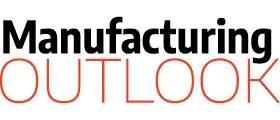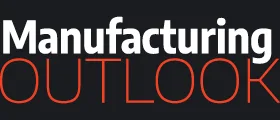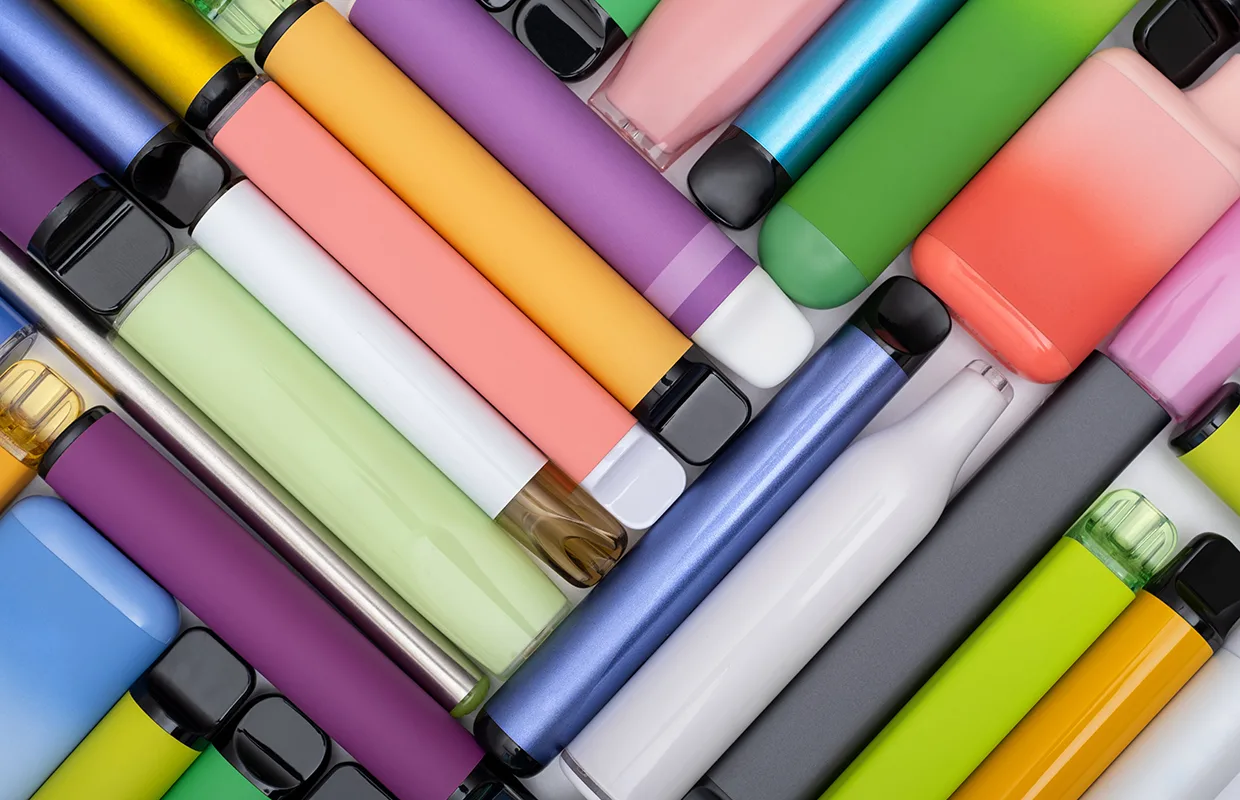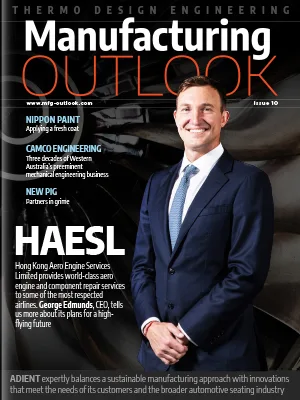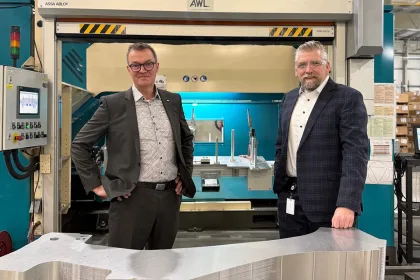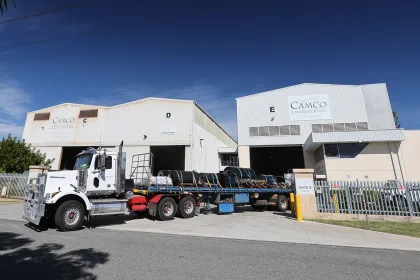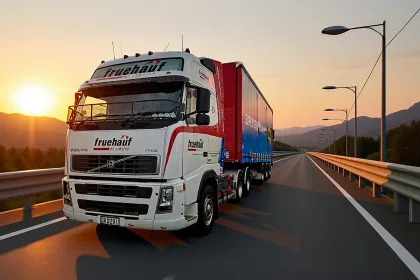Millions of disposable vapes, packed with lithium batteries and toxic materials, end up in landfills each year. With the ban on single-use vapes in the UK, the industry is being forced to clean up its act. John Redmayne, CEO of European Recycling Platform UK, taps further into this topical issue.
EPR COMPLIANCE IN VAPE PRODUCTION
We’ve all seen them – the tell-tale glint of discarded vape devices littering our streets and parks.
As the environmental impact of the vaping boom unfolds across the UK, the disconnect between rapid market growth and proper end-of-life management has become impossible to ignore.
The UK vape industry is experiencing unprecedented growth, with consumers purchasing an estimated 13.5 million vapes weekly in 2024 – a staggering 37 percent increase year-on-year.
Alongside this commercial success comes a mounting environmental crisis and regulatory landscape that many manufacturers, retailers, and waste supply chain professionals are dangerously unprepared to navigate.
FROM PUFF TO PROBLEM
Since 1st June 2025, a ban on single-use vapes has been in place.
In parallel, environmental agencies are intensifying the enforcement of extended producer responsibility (EPR) regulations across the vape sector – regulations that have been in place but largely overlooked until now.
This enforcement shift creates significant challenges for manufacturing and supply chain management, particularly for smaller producers who may lack dedicated compliance resources.
Under the Waste Electrical and Electronic Equipment (WEEE) regulations, vape manufacturers and importers bear responsibility for the entire lifecycle of their products.
This means not just designing, manufacturing, and selling vapes, but also ensuring proper collection, transportation, and recycling at end-of-life.
With approximately 8.2 million single-use vapes discarded weekly in the UK, the environmental implications are substantial, and regulators are taking notice.
The Environment Agency, supported by local authority trading standards, the Department of Environment, Food, and Rural Affairs (DEFRA), the Office for Product Safety and Standards (OPSS), and the Medicines and Healthcare products Regulatory Agency (MHRA), is now actively targeting non-compliant vape producers.
Every brand, regardless of size, must register with an approved compliance scheme and accurately report on its waste or face serious consequences, including financial penalties, public investigations, and significant reputational damage.
HAZARDOUS JOURNEY
For supply chain professionals, this regulatory shift introduces complex logistical challenges. Vape recycling isn’t simply a matter of conventional waste management – it requires specialised handling throughout the collection and transportation process due to the hazardous materials involved.
Lithium-ion batteries present particular challenges, with fire risks during transport being a serious concern. Proper vape recycling demands ADR-licensed transport for hazardous materials, specialised containment systems (sometimes using vermiculite for added safety), and carefully managed logistics to prevent environmental contamination.
Once collected, vapes must be transported to specialised facilities where they undergo a complex dismantling process. Components are separated – plastics, metals, electronic elements, and batteries – with each material stream requiring different recycling pathways. The e-liquids themselves must be safely extracted and disposed of according to hazardous waste protocols.
For retailers, the responsibilities are equally significant. Those left with stock of single-use vapes they can no longer sell must seek a responsible recycling method or risk hefty fines, and under WEEE regulations, businesses selling vapes must provide recycling options for consumers.
If retailers have small amounts of stock, they may be able to dispose of them in the single-use vape bins they are legally required to provide in-store for customers.
However, for larger quantities, a specialist waste company will need to be engaged for ethical, safe, and legal clearance.
In these cases, retailers must arrange for the secure transportation of these collected materials to appropriate recycling facilities – a process that demands careful planning and often specialised logistics partners.
BEYOND COMPLIANCE
Smaller manufacturers and brands face particular vulnerability in this changing landscape. Without dedicated compliance teams, many remain unaware of their legal obligations until enforcement action begins. By then, the financial and reputational damage can be severe.
However, within this regulatory challenge lies a strategic opportunity. Forward-thinking manufacturers are recognising that robust EPR compliance can become a market differentiator.
As consumer awareness of environmental issues grows, brands demonstrating responsible end-of-life management for their products can build stronger customer loyalty and brand reputation.
Looking ahead, the regulatory landscape will only become more demanding. A new specific WEEE category for vapes (including replacement coils) will be introduced in 2026, bringing even greater scrutiny to the sector. Manufacturers who establish compliant supply chain processes now will be better positioned to adapt to these future changes.
For supply chain professionals in the vape industry, the message is clear – EPR compliance is becoming a fundamental business requirement that demands strategic attention.
This means conducting thorough audits of current practices, engaging with approved compliance schemes, and developing robust systems for tracking products throughout their lifecycle.
HELP AT HAND
The transition to full EPR compliance requires expertise and guidance. Organisations like European Recycling Platform UK can provide essential support in navigating these complex regulations, helping manufacturers and retailers develop compliant processes whilst minimising disruption to their operations.
From registration and reporting to developing effective take-back schemes, specialised compliance partners can transform a potential regulatory headache into a streamlined part of business operations.
Vapes aren’t disappearing in a cloud of regulatory smoke any time soon – quite the opposite. The industry will continue to evolve, innovate, and grow – but those that thrive will be the manufacturers and retailers who embrace their environmental responsibilities with the same enthusiasm they’ve shown for market expansion.
The most successful players will be those who see WEEE compliance not as a burden, but as an integral part of building a sustainable, responsible business model that resonates with increasingly eco-conscious consumers.
